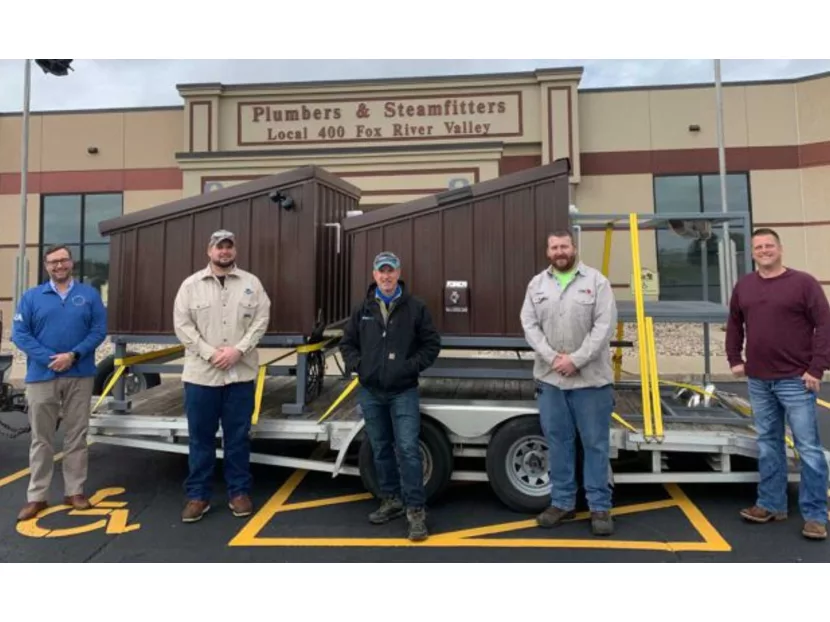The International Water, Sanitation and Hygiene Foundation (IWSH) has announced it is leading a project to deliver mobile wash stations to the Navajo Nation reservation, where more than 30 percent of residents — an estimated 52,000 people — live without access to running water.
With the COVID-19 pandemic having hit the Navajo Nation especially hard — more than 13,000 residents have now contracted the virus — the ability to wash one’s hands has never been more important.
Two prototype units were recently unveiled at the Milwaukee School of Engineering (MSOE), where students Kathryn Ashley and Sarah Ceurvorst — both members of the American Society of Plumbing Engineers — are leading a range of testing and troubleshooting activities involving the school community and general public through the winter months. People using the stations are encouraged to complete a survey that may be accessed by scanning an accompanying QR code.
IWSH and DigDeep — a grassroots nonprofit working to expand running water on the Navajo Nation through its indigenous-led Navajo Water Project — collaborated to design the prototypes. Volunteers at UA Local 400 in Kaukauna, Wisconsin, assembled the stations, a 120-volt model and a solar-powered 12-volt model. The designs will be revised to incorporate findings from the on-campus testing, and the technical drawings and bill of materials will be finalized. IWSH will then lead a Wash Station Challenge in the spring, during which volunteers at UA locals throughout the United States will be invited to assemble 10 to 12 wash stations ready for delivery to the Navajo Nation in summer 2021.
“UA 400 is excited to be a part of this critical project,” UA Local 400 Business Manager Trevor Martin said. “UA 400’s members are proud to volunteer their skills and knowledge to such a worthy effort! IWSH and DigDeep continue to do great work throughout the United States and the world, providing safe water and hygiene solutions to the most remote corners of the globe.”
Doug Nelson, an associate professor in the Civil and Architectural Engineering Department, and Natalie Villegas, a project coordinator in MSOE’s Community-focused Real-world Engagement in Academics Through Experiential-learning (CREATE) Institute, are overseeing the testing at the school.
“MSOE has a long history of solving practical engineering problems using applied projects in communities,” Nelson said. “CREATE was founded on this tradition and we are especially pleased to have the Navajo Nation be one of those communities.”
Randy Lorge, director of workforce training and development for the International Association of Plumbing and Mechanical Officials (IAPMO) and a UA Local 400 member, is leading the overall project. Lorge was an instructor of the plumbing apprenticeship program at Fox Valley Technical College in Appleton, Wisconsin, when he and Nelson served as coaches for Team USA in the 2015 Community Plumbing Challenge (CPC) in Nashik, India, and the 2016 CPC in Diepsloot, South Africa.
“I am very proud of the support IWSH received from UA Local 400 on this project,” Lorge added. “For each of the Community Plumbing Challenges (CPC) over the past five years, they have literally shown the world that their members are ready and willing to help whenever and wherever they are needed. The skills and craftsmanship they bring to help the CPCs are second to none and the prototypes reflect it. With having the prototypes completed, it was a natural fit to call on Doug Nelson and his MSOE students to take our designs to the next level.”
Established in 2019, the CREATE Institute ensures MSOE students receive well-rounded, high-impact educational experiences that will enhance the relevancy of their learning. The institute works with faculty, staff and students as a campus resource for industry engagement and academic excellence.
IWSH will be sharing updates from the prototyping project at MSOE through the winter and announcing the Wash Station Challenge in the new year.




